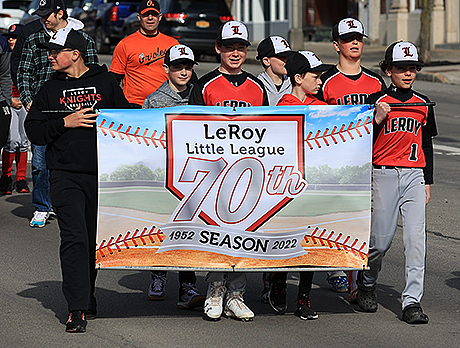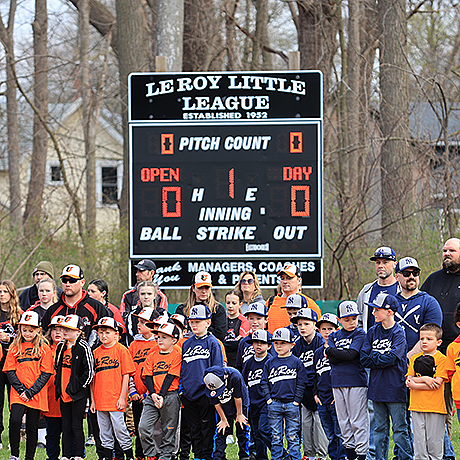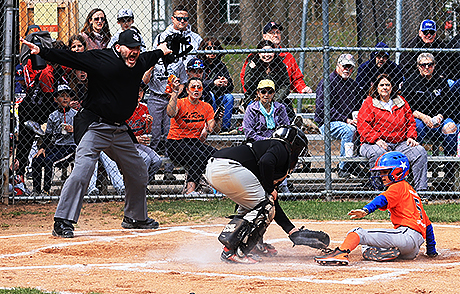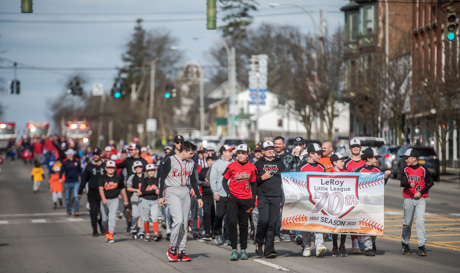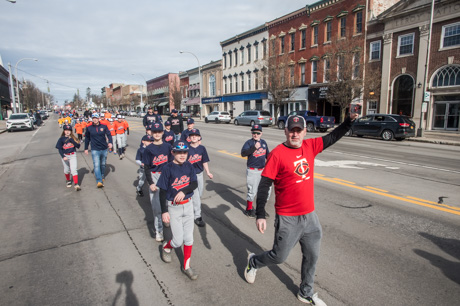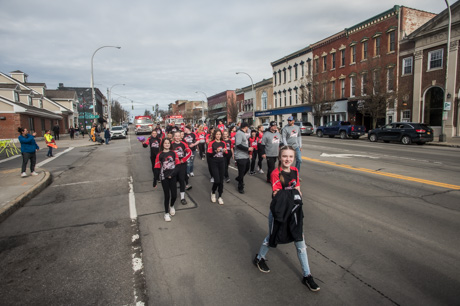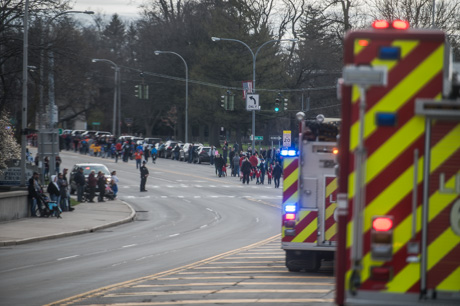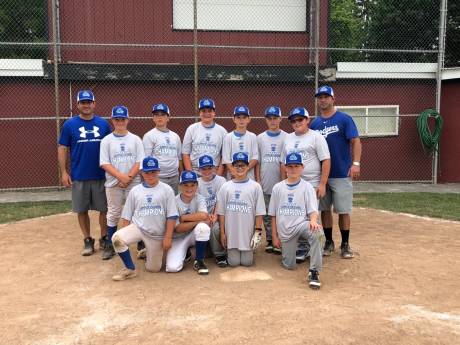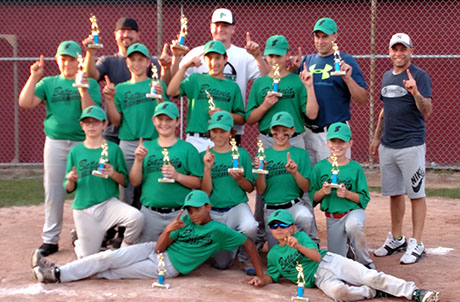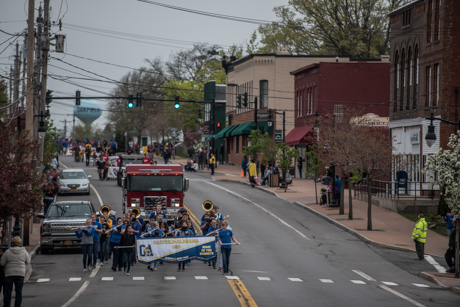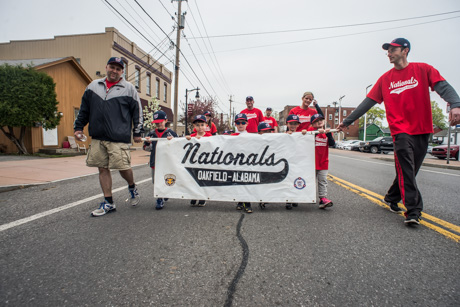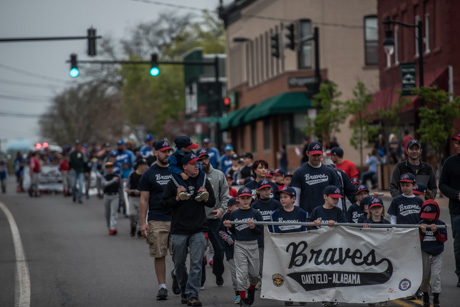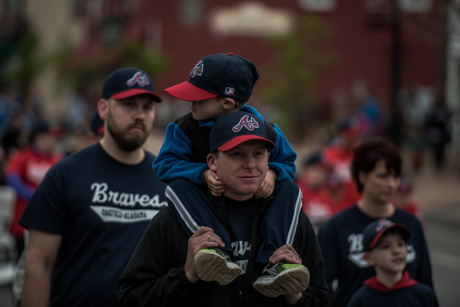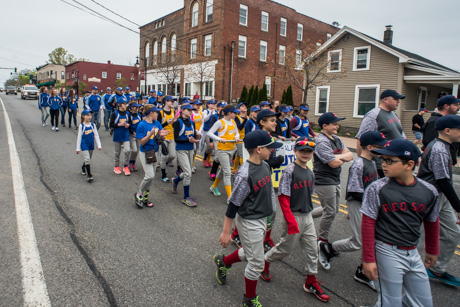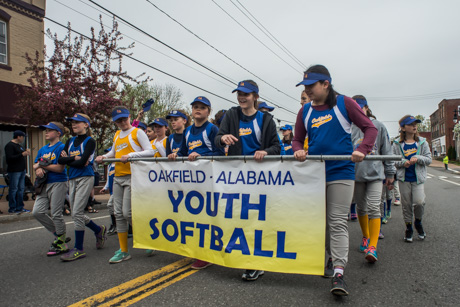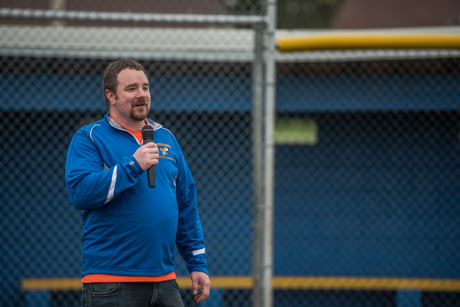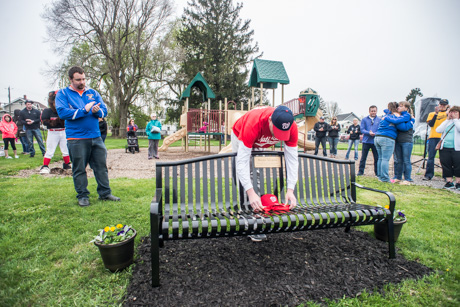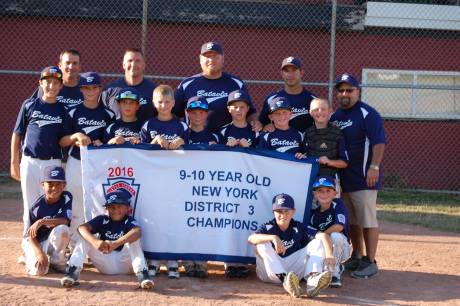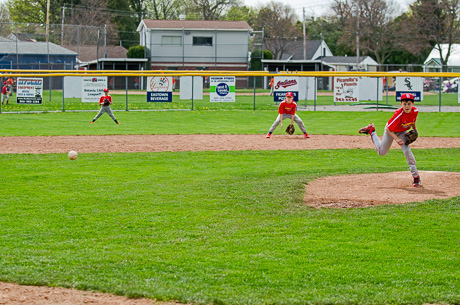The controversy that erupted two weeks ago over a health department demand that the Batavia Little League secure the proper permits to sell hots and pizza was actually years in the making, department officials told members of the County Legislature yesterday.
At the request of the Human Services Committee, Paul Pettit, Public Health director, and David Whitcroft, Environmental Health director, attended the committee's meeting at the Old Courthouse and answered legislators' questions.
The fee schedule for various permits issued by the department changed in 2003 and that made it mandatory for most of the area nonprofit groups that hold events and serve food to acquire health permits.
It was sticky issue when nonprofits were exempt because it isn't always clear what qualifies as a nonprofit, or what events should get exempted, Whitcroft said.
"It was an ethical problem," Whitcroft said. "It was entirely subjective. Who determines who doesn't have to pay? There was no standard to decide and that gives a lot of power to individuals to decide who gets waivers. I wasn't comfortable with that power."
In 2013, the county's Public Health Committee learned that for some reason, youth baseball had been exempted from the permit requirement, and nobody really knew why that was or how that happened.
"It seemed unfair because if I'm playing with a bat and ball, I don't have to pay, but if I'm playing with a soccer ball, then I have to pay," Pettit said.
Most of those bat-and-ball organizations complied with the new rules once it applied to them, Whitcroft said, and in many cases, the department was able to work with organizations to help better determine which permit was appropriate to the situation, or how food operations might be changed to lower permit costs.
The rules can be "interpreted generously" when organizations are cooperative, Whitcroft said.
Whitcroft implied that Batavia Little League was less than cooperative, telling officials that they refused to comply. That left the county with no option but to require a permit level with a $175 price tag.
Now, the league is more cooperative and the department is working with league leaders on what could be a lower cost option.
Permit fees barely even cover the costs of field inspections of food services, Pettit said. The department is not looking to turn a profit on permits, just cover the direct costs of inspections, he said.
Every business, group or organization that serves prepared food (rather than pre-packaged food) is required to obtain some level of Health Department permit. It's not just a piece of paper, Pettit said. It serves as notice to the county that food service is taking place and triggers an automatic inspection of the food service. There is an inspection with each and every permit issued.
There are some exceptions to the permit requirement. Churches with kitchens that serve only their own members need only obtain a letter of permission. There are about 60 letters of permission on file in the county.
Outside groups that use church kitchens for fundraisers or other public meals are required to get a temporary health permit.
Bake sales involving anything that doesn't need to be refrigerated are not required to get a permit.
Your kid's lemonade stand, however, is required to have a health permit.
"It's required under New York State law and I should enforce it, but I never have," Whitcroft said.
In all, various permits issued by the Health Department generate about $90,000 in revenue annually. Less than $8,000 of that revenue comes from groups that could be considered nonprofits.
